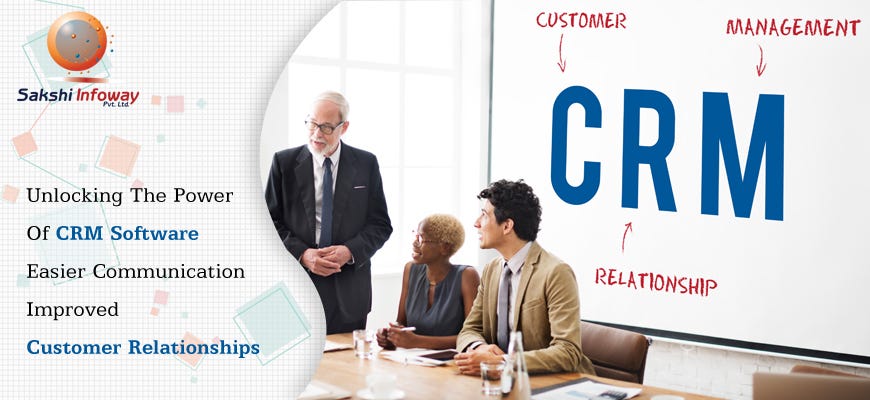To evaluate CRM software, consider its features, customization options, usability, and integration capabilities. Looking at these factors helps determine if the software is suitable for your business needs and goals.
Effective evaluation ensures that you choose the right CRM software to enhance customer relationships and streamline operations.
Understanding Your Business Needs
Understanding Your Business Needs:
When evaluating CRM software, it is crucial to identify the purpose it will serve for your business. Begin by assessing the current pain points and challenges your company faces in managing customer relationships. This will help you determine the specific features and functionalities that are necessary for your CRM software. Additionally, defining clear goals and objectives for CRM implementation is essential. Consider what you aim to achieve with CRM, such as improving customer satisfaction, streamlining sales processes, or increasing marketing efficiency. Understanding your business needs will guide you in selecting the most suitable CRM software.
Key Features To Consider
Key Features to Consider:
- Customization and Scalability: A CRM software should offer customization options to adapt to your business needs and be scalable as your business grows.
- User-friendly Interface and Accessibility: Look for a CRM with an intuitive and user-friendly interface that is easily accessible for all your team members.
- Integration with Existing Systems: Consider a CRM that seamlessly integrates with your existing systems and tools to avoid disruptions and maximize productivity.
- Data Security and Privacy Measures: Ensure the CRM software follows robust data security measures and privacy protocols to protect your sensitive information.
- Reporting and Analytics Capabilities: Look for CRM software that provides comprehensive reporting and analytics capabilities to track and analyze your business performance.
Evaluating CRM Vendors
When evaluating CRM software, it is important to conduct thorough research and shortlist potential vendors based on specific criteria. Start by **comparing pricing** and subscription models offered by different vendors to ensure they align with your budget and requirements. Additionally, **review the reputation** of each vendor and their track record in providing excellent customer support. This can be done by reading customer reviews and testimonials. To get a better understanding of how each CRM software functions, **request product demos and trials** from the shortlisted vendors. This will allow you to evaluate its features, user-friendliness, and compatibility with your business needs. Keeping these key factors in mind will help you make an informed decision when selecting a CRM software that best suits your organization.
Assessing CRM Functionality
Assessing CRM functionality is essential when evaluating CRM software. This involves examining core CRM features to ensure the software meets your business needs. First, analyzing contact management capabilities allows you to determine how effectively the CRM handles customer information and interactions. Next, evaluating sales and lead management tools helps assess the software’s ability to track leads, manage sales pipelines, and forecast revenue. Additionally, assessing marketing automation features is crucial for automating marketing campaigns, managing customer communication, and measuring marketing effectiveness. Lastly, reviewing customer service and support functionality allows you to evaluate the CRM’s ability to handle customer inquiries, track support tickets, and provide seamless customer experiences. By assessing these core CRM features, you can make an informed decision when choosing the right CRM software for your business.
Considering Implementation And Adoption
The evaluation of CRM software involves considering various factors related to its implementation and adoption. Assessing the ease of implementation is crucial to determine how quickly and smoothly the software can be integrated into existing systems. This includes evaluating compatibility with other software and the overall complexity of the implementation process. Analyzing training and support options is important to ensure that users receive adequate guidance and assistance when using the CRM software. User adoption and user experience should also be assessed to understand how well the software is accepted by the users and how it enhances their experience. Additionally, identifying potential integration challenges helps to determine if there will be any difficulties in connecting the CRM software with other tools or databases. Taking these factors into account will enable businesses to make an informed decision when evaluating CRM software options.
Measuring Return On Investment (Roi)
Measuring the Return on Investment (ROI) for CRM software is essential to determine its effectiveness. Determining key performance metrics helps in assessing the impact of the CRM system on business goals. Calculating CRM ROI involves analyzing the financial benefits achieved from implementing the software, such as increased sales revenue and reduced operational costs. This can be done by comparing the ROI with the initial investment and considering the time taken to achieve positive results. Analyzing cost versus benefits is another crucial factor in evaluating CRM software. It involves evaluating the costs associated with implementation, training, customization, and maintenance against the expected benefits, like improved customer satisfaction and increased productivity. Consulting with stakeholders, such as sales reps, customer service teams, and management, helps gain insights into their specific needs and expectations from the CRM system. Their input is crucial in measuring the success of the software and making informed decisions.
Finalizing The Decision
When evaluating CRM software, it is crucial to involve key stakeholders in the decision-making process. Seeking input from individuals who will be directly impacted by the software ensures that their needs and preferences are taken into account. It is also important to consider the long-term reliability and reputation of the CRM software. Look for established providers with a track record of delivering quality solutions. To make an informed decision, compare features, functionalities, and pricing of different CRM software options. Consider factors such as user-friendliness, integration capabilities, and customer support. Once the decision has been made, it is essential to have a plan in place for implementing the chosen CRM software. This includes training employees, migrating data, and setting up processes to ensure a smooth transition.

Credit: www.d-tools.com
Read more: How to Choose the Best Crm Software for Your Business?
Frequently Asked Questions For How To Evaluate Crm Software?
How Do I Evaluate CRM Software?
Evaluating CRM software involves assessing its features, usability, scalability, integration capabilities, and customer support. Consider factors like customization options, reporting capabilities, mobile accessibility, and security measures. Additionally, read user reviews, request demos, and compare prices to ensure you choose a CRM software that aligns with your business goals and requirements.
What Are The Key Features To Look For In CRM Software?
When evaluating CRM software, key features to look for include contact management, lead and opportunity management, sales forecasting, email marketing integration, task and calendar management, analytics and reporting, mobile accessibility, and customer support functionalities. Consider your specific business needs and select a CRM software that offers the essential features to enhance productivity and boost customer satisfaction.
How Do I Determine The Ease Of Use Of CRM Software?
To determine the ease of use of CRM software, sign up for free trials or request demos from different vendors. Pay attention to the user interface, navigation, and intuitiveness of the software. Evaluate if it allows easy data entry, smooth navigation between screens, and simple customization options.
Prioritize software that requires minimal training and ensures a smooth adoption process for your team.
Conclusion
Evaluating CRM software is a crucial step in optimizing your business operations. By considering factors such as functionality, customization options, integration capabilities, and pricing, you can make an informed decision that aligns with your organization’s unique needs. Remember to prioritize scalability and ease of use to ensure long-term success.
Performing a thorough evaluation will empower you to choose the CRM software that enhances productivity, streamlines processes, and ultimately drives business growth.




